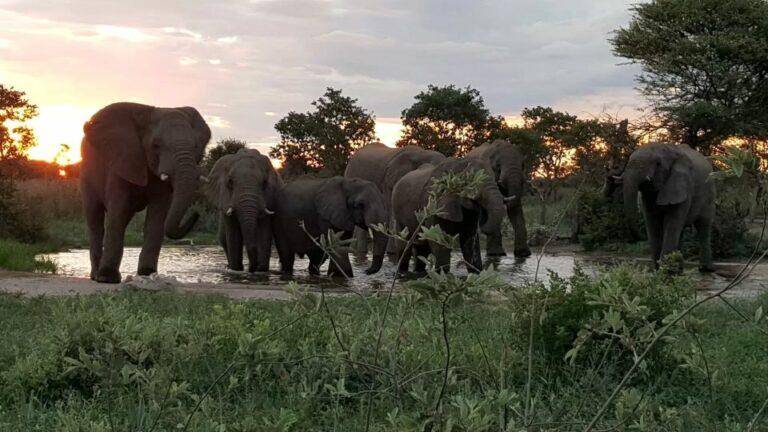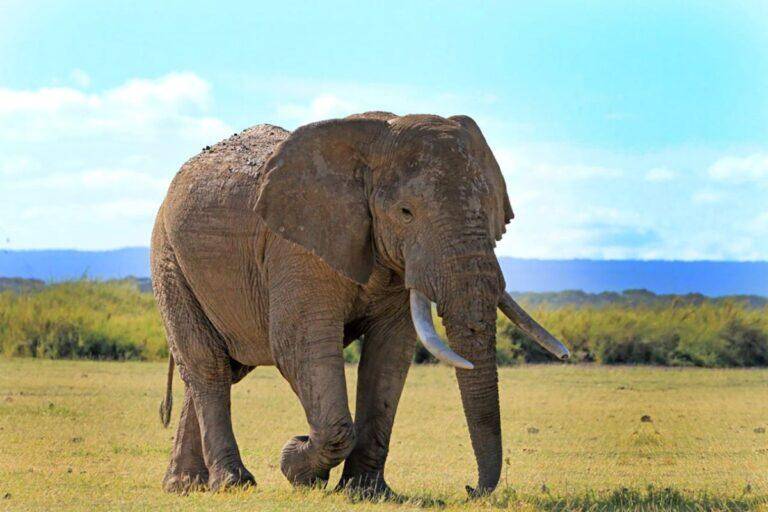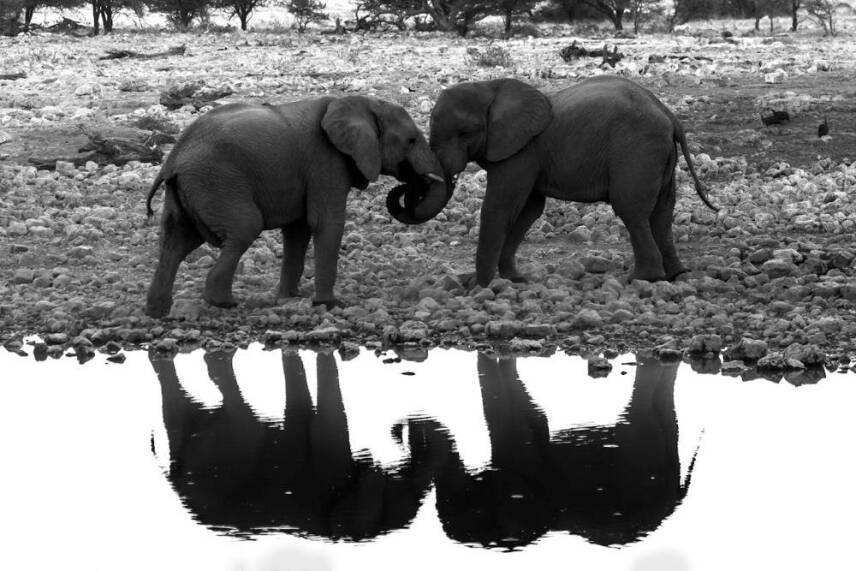Elephant hunting in Zimbabwe offers a unique opportunity to experience the wild beauty of Africa while engaging in one of the most challenging pursuits in game hunting. Known for its vast wilderness and thriving elephant populations, Zimbabwe has become a premier destination for those seeking a true test of skill and patience. The country’s carefully managed hunting areas ensure sustainable practices that support both conservation efforts and local communities.
As we navigate the rugged landscapes and track these majestic animals, the experience becomes more than just a hunt—it’s a journey into the heart of Africa’s untamed wilderness. From the dense bush to open savannahs, every step brings a deeper connection to the land and its wildlife. For hunters, Zimbabwe offers not just the thrill of the chase but also the chance to contribute to ethical and responsible hunting practices that safeguard the future of these iconic species.
[DYNAMIC-BLOGTABLEOFCONTENT]
Key Takeaways
-
Zimbabwe is a premier destination for elephant hunting due to its rich wildlife, regulated hunting practices, and emphasis on sustainability and conservation.
-
Controlled elephant hunting contributes to population management, habitat preservation, and anti-poaching efforts, ensuring long-term ecological balance.
-
Revenue generated from hunting directly supports local communities through development programs, infrastructure projects, and employment opportunities.
-
Permits and quotas for elephant hunting are strictly regulated, targeting mature bulls to maintain healthy populations and ecological stability.
-
Ethical debates surround the practice, with proponents highlighting conservation benefits while opponents advocate for non-lethal alternatives like ecotourism.
-
Alternative conservation strategies, including anti-poaching initiatives and ecotourism, complement hunting and offer sustainable benefits for wildlife and communities.
Overview Of Elephant Hunting In Zimbabwe
Elephant hunting in Zimbabwe offers a unique opportunity to engage with one of Africa’s most iconic species. Zimbabwe is known for its vast wilderness areas, including national parks and private conservancies, which support healthy elephant populations. The country’s conservation policies allow for regulated elephant hunting, balancing wildlife sustainability with the economic benefits derived from responsible hunting activities.
Zimbabwe has become a prime destination for elephant hunts due to its commitment to ethical practices and biodiversity protection. Elephant hunting listings often feature customizable options to suit hunters’ preferences, from the duration of the safari to the specific regions targeted. These hunts provide a challenging and immersive experience, requiring advanced skills in tracking and patience to locate mature bulls.
Hunters can explore diverse habitats such as savannahs and woodlands, which create dynamic hunting scenarios. The country’s regulations ensure that each hunting permit directly contributes to conservation efforts, supporting anti-poaching operations and community development programs. In addition to ecological benefits, elephant hunts in Zimbabwe play a significant role in sustaining local economies by generating revenue and creating employment opportunities for nearby communities.
For those seeking a tailored hunting experience, elephant hunting packages often include professional guides, accommodations, and essential logistics. These packages streamline the hunting process, combining expertise with convenience to create a seamless experience. Whether one participates in a multi-day expedition or a more concentrated hunt, Zimbabwe’s rich landscapes present unmatched opportunities for those pursuing Africa’s giants.

Historical Context
Elephant hunting in Zimbabwe is deeply rooted in the nation’s history, shaped by longstanding traditions and evolving conservation efforts. Its significance spans from cultural practices to modern legal frameworks designed to maintain ecological balance.
Traditional Practices And Cultural Significance
Communities in Zimbabwe have historically regarded elephants with respect, often linking their presence to myths or symbols of strength and wisdom. Traditional hunting was typically ceremonial, performed under strict guidelines to honor both the animal and the environment. For instance, certain tribes considered elephants sacred, using their ivory for rituals or craftsmanship. These practices sustained harmony between human populations and wildlife, reflecting a profound ecological understanding.
In many regions, local communities depended on elephant-related products, such as meat and crafted ivory, for trade or sustenance. Though indigenous customs rarely posed a threat to elephant populations, they set the foundation for Zimbabwe’s enduring relationship with these majestic animals.
Evolution Of Hunting Laws And Policies
Hunting regulations in Zimbabwe emerged to counteract the unregulated exploitation witnessed during the colonial period, which led to significant wildlife declines. By the mid-20th century, authorities implemented structured policies to protect elephant populations while catering to controlled hunting interests. In 1975, Zimbabwe ratified international agreements, including the Convention on International Trade in Endangered Species of Wild Fauna and Flora (CITES), which restricted ivory trade and commercial hunting.
Modern policies ensure ethical practices, blending regulated hunting with conservation goals. Permits for elephant hunts in Zimbabwe, issued under strict quota systems, align with population management strategies and financial benefits for wildlife reserves. Revenue from hunting activities supports habitat protection, anti-poaching operations, and local community development. Conservation laws also require licensed hunters to follow sustainability guidelines that preserve the country’s ecosystem.
Today, Zimbabwe remains a prime destination for responsible hunting enthusiasts due to its robust regulatory framework and well-managed wildlife reserves. These measures enable elephant hunting to coexist with conservation, highlighting a balance between ecological preservation and economic sustenance.
Current Legal Framework
Elephant hunting in Zimbabwe operates under a comprehensive legal framework designed to regulate hunting activities and protect wildlife. The system governs the ethical and sustainable management of elephant populations while supporting conservation and local development.
Regulation of Trophy Hunting
Zimbabwe’s wildlife laws closely monitor the practice of trophy hunting. Authorities ensure that hunting is conducted only within designated areas, such as hunting concessions, private game reserves, or state-controlled safaris. These areas are managed under conservation plans that prioritize ecological balance. For example, concessions implement habitat management practices to sustain healthy elephant populations.
The Parks and Wildlife Act (Chapter 20:14) serves as the backbone of Zimbabwe’s wildlife policies. Through this legislation, penalties for illegal hunting and trophy trafficking are enforced. Wildlife authorities collaborate with anti-poaching units to secure protected areas and prevent unlawful activities. This system ensures controlled elephant hunts in Zimbabwe align with global conservation standards.
Permits and Quotas
Permits for elephant hunting in Zimbabwe are issued under strict quotas established by the Zimbabwe Parks and Wildlife Management Authority (ZPWMA). These quotas are determined based on detailed population surveys, which assess factors like herd size, growth rates, and environmental conditions. For 2023, conservative quotas maintain sustainable off-take levels, ensuring no harm to the overall population.
Each permit specifies conditions, such as the allowable hunting area, time frame, and age of the elephant. The most desirable trophies often come from mature bulls which have naturally passed their breeding prime. Hunters can find elephant hunting listings that include such details to guide a lawful safari.
Revenue from permits directly funds conservation efforts and community development. Professional hunting guides assist in adhering to these regulations, creating a structured and responsible hunting experience. Permits issued are non-transferable and contribute to transparent, ethical practices in wildlife tourism.

Environmental And Ethical Implications
Regulated elephant hunting in Zimbabwe has environmental and ethical dimensions that affect conservation efforts and public opinion. Exploring these implications highlights the importance of maintaining a balance between ecological sustainability and ethical considerations.
Impact On Elephant Populations
Controlled elephant hunts in Zimbabwe contribute to species management and habitat preservation. Quotas for hunting permits are based on detailed population surveys conducted by wildlife authorities. These quotas ensure that hunting doesn’t harm overall elephant numbers. For example, harvesting older bulls allows younger elephants to thrive while minimizing the environmental strain caused by overpopulation in certain areas.
Revenue generated from elephant hunting packages directly funds anti-poaching programs, providing resources to combat illegal activities that threaten wildlife. Such programs strengthen enforcement in areas where poaching risks are high. Additionally, funds support habitat restoration projects ensuring healthier ecosystems for elephants and other species.
Ethical Debates Surrounding Hunting
The ethical aspects of elephant hunting spark global discussions about the morality of the practice. Advocates argue that regulated hunting benefits both wildlife and local communities. By generating income, elephant hunting listings provide critical financial aid for community development programs, including healthcare and education initiatives.
Opponents challenge the claim of conservation benefits, suggesting non-lethal alternatives like eco-tourism for similar financial support. However, areas with limited tourism potential often rely on controlled hunting revenue. This creates a complex ethical landscape where the necessity of regulated hunting balances against potential controversies in public perception.
Economic Importance
Elephant hunting in Zimbabwe contributes directly to the country’s economy, supporting wildlife conservation and local communities. Through controlled hunting models, revenue from permits and hunting packages provides vital financial resources for sustainable development.
Contribution To Local Communities
Elephant hunting generates income for rural communities located near wildlife areas. A significant portion of fees collected from elephant hunting permits funds schools, healthcare clinics, clean water projects, and infrastructure development. For example, rural districts benefit directly through Zimbabwe’s CAMPFIRE (Communal Areas Management Program for Indigenous Resources) initiative, which redistributes hunting proceeds to communities managing wildlife on their lands.
Employment opportunities arise from elephant hunting activities, including trackers, scouts, professional hunting guides, and lodge staff. Many community members earn livelihoods by working in roles linked to safaris. Additionally, meat from hunted elephants often supplements food supplies in local villages, further reinforcing community welfare.
Role In Zimbabwe’s Tourism Industry
Elephant hunting in Zimbabwe plays a crucial role within its broader tourism industry. Hunters traveling from around the globe contribute to significant tourism revenue by purchasing elephant hunting packages and booking extended accommodations. The demand for customized safaris, which often include tailored hunting experiences, bolsters seasonal tourism and encourages the growth of related industries.
Luxury safari operators, transport services, and tour guides all benefit from hunters visiting Zimbabwe for big game hunts. For instance, elephant hunting listings attract visitors to remote areas that may not typically gain tourism exposure, thereby increasing the overall economic reach. This not only diversifies Zimbabwe’s tourism market but also strengthens its global reputation as a sustainable hunting destination.
Alternative Conservation Strategies
Safeguarding elephant populations in Zimbabwe involves more than regulated hunting. Exploring innovative conservation methods strengthens biodiversity, promotes sustainability, and engages local communities.
Anti-Poaching Efforts
Targeted anti-poaching initiatives reduce illegal wildlife trade and protect elephants from unregulated killings. Zimbabwe employs patrol teams, surveillance technology, and partnerships with international organizations to combat poaching effectively. For example, organizations like the International Anti-Poaching Foundation train rangers and use drones to monitor wildlife areas.
Community-driven programs also deter poaching. Locals are incentivized through revenue-sharing models that benefit their villages, aligning personal interests with elephant conservation. Additionally, funds from regulated hunting, including elephant hunting packages, contribute to anti-poaching operations, ensuring both controlled hunts and illegal killings are addressed comprehensively.
Ecotourism As A Sustainable Option
Ecotourism offers a viable alternative to traditional hunting activities while delivering substantial conservation benefits. Safari experiences, wildlife photography tours, and eco-lodges attract tourists seeking ethical wildlife interactions. This approach stimulates the economy without requiring lethal methods. For instance, Hwange National Park provides eco-friendly tourism services that showcase Zimbabwe’s majestic elephants in their natural habitats.
The financial inflows from ecotourism rival those of elephant hunting in Zimbabwe, contributing to community development, habitat preservation, and anti-poaching measures. By expanding ecotourism programs, we can heighten global awareness of Zimbabwe’s wildlife, diverting international discourse onto sustainable conservation strategies.
Conclusion
Elephant hunting in Zimbabwe represents a complex intersection of tradition, conservation, and economic impact. By balancing ethical practices with sustainable management, it supports wildlife preservation while benefiting local communities. Whether through regulated hunting or alternative strategies like ecotourism, Zimbabwe continues to lead in innovative conservation efforts.
As we explore these opportunities, it’s clear that responsible engagement with wildlife can foster a deeper appreciation for Africa’s rich ecosystems. Zimbabwe’s approach offers a model for aligning conservation goals with economic sustainability, ensuring a future where both elephants and communities thrive.
Frequently Asked Questions
What makes Zimbabwe a top destination for elephant hunting?
Zimbabwe is known for its vast wilderness, healthy elephant populations, and regulated hunting practices. The country’s conservation policies ensure a balance between hunting and wildlife sustainability, making it a prime destination for skilled hunters.
How does Zimbabwe ensure sustainable elephant hunting?
Zimbabwe enforces strict quotas based on population surveys to manage hunting sustainably. Revenue generated from permits funds conservation efforts, anti-poaching initiatives, and community development programs.
Are elephant hunting practices in Zimbabwe ethical?
Zimbabwe promotes ethical hunting through professional guides, strict regulations, and adherence to conservation goals. The practice supports wildlife preservation, habitat restoration, and local community welfare.
What is the role of hunting in Zimbabwe’s economy?
Elephant hunting generates significant revenue for Zimbabwe’s economy. It provides funding for conservation programs, creates jobs for locals, and supports essential services like schools and healthcare in rural communities.
How are communities in Zimbabwe involved in elephant conservation?
Communities benefit from revenue-sharing programs like CAMPFIRE, aligning local interests with conservation goals. Communities receive income from hunting permits, which is reinvested into education, healthcare, and infrastructure.
What legal framework governs elephant hunting in Zimbabwe?
Hunting is regulated under Zimbabwe’s Parks and Wildlife Act, with permits specifying conditions such as hunting areas, timeframes, and animal age. Enforcement ensures ethical and sustainable practices.
What alternatives to hunting support elephant conservation in Zimbabwe?
Alternatives like ecotourism and wildlife photography tours contribute to conservation and local economies. These approaches promote non-lethal interactions with wildlife while funding habitat preservation and anti-poaching efforts.
How are hunting proceeds used to protect elephants?
Proceeds from hunting permits directly fund anti-poaching operations, habitat restoration, and community projects. This aligns hunting practices with long-term species preservation.
Is elephant hunting tied to Zimbabwe’s cultural heritage?
Yes, elephant hunting has deep cultural roots in Zimbabwe, historically tied to ceremonies and traditions. Modern practices have evolved with conservation laws to ensure sustainability and respect for wildlife.
What habitats in Zimbabwe provide the best hunting experiences?
Zimbabwe’s diverse habitats, including savannahs and woodlands, offer dynamic hunting scenarios. These environments challenge hunters with advanced tracking opportunities, enhancing the overall experience.
